(Note: This analysis is based on the 1991 Special Edition of Aliens. Also, stay away if you don’t wish to be spoiled for certain summer superhero flicks.)
I’d
like to tell you a story. Once upon a time, there lived a dark-haired
hero who fought against an alien threat, risking their life to save the
people of Earth. Following the alien attack, the hero was tormented by
the experience and found it difficult to sleep. They turned to action as
a way to move beyond their psychological trauma, getting assistance
from both the military and a resourceful child. Finally, they fought
their enemy in a violent showdown while wearing a mechanized suit, and a
woman ultimately saved the day. Now, name that story.
If you’re up to date in your Marvel Cinematic Universe travels, you probably answered Iron Man 3.
If you’ve been following this blog, you’ve probably deduced that we’re
going through this month’s films in chronological order, and therefore
answered Aliens. Both are correct.
Aliens
takes place fifty-seven years after the events of the first film,
beginning when Ripley’s shuttle is found by a salvage crew, with the
hypersleeping Ripley still inside. She is taken to Gateway Station,
where she is called to answer for the destruction of the Nostromo. The
people who conduct the inquest, a group of executives employed by the
insidious Company, Weyland-Yutani, don’t believe her story about the
Xenomorphs, and they revoke her flight officer license. Demotion proves
easier to deal with than the dreams that haunt Ripley’s sleep, dreams in
which she sees an alien burst from her chest. When the Company loses
contact with the colony that they have established on the aliens’
planetoid, LV-426, they mount a mission to destroy the aliens once and
for all. It is this objective that convinces Ripley to join the mission
as a consultant, which she hopes will give her some peace of mind. (It’s
a good thing she didn’t know about the sequels, or she might have just
stayed home.)
Whereas Alien builds up to the reveal of its protagonist, the creators of Aliens know
from the get-go that we’re here for Ripley. The first film subverts
convention and forces the audience to identify with a female hero, and
the second strengthens this identification, even going so far as to
align the audience with Ripley’s subjectivity by having us witness one
of her nightmares.
Almost
the entire first act is devoted to seeing Ripley try to cope with the
consequences of her actions in the first film. What was a heroic triumph
becomes complicated by the passing of decades and the return to
civilization. Having defeated the representative of the Company on the
Nostromo, Ripley now has to face Weyland-Yutani’s executives and justify
the financial losses incurred by her actions. Here, again, she is
dismissed by those who think they know better, and she defies them just
as she did before. When they end the inquest, she responds, “Goddamn it,
that’s not all! Because if one of those things gets down here, then
that will be all! Then all this, this bullshit that you think is so
important, you can just kiss all of that goodbye!” As before, she finds
that she and the Company are operating within completely different value
systems; she saved humankind, and they claim that she “acted with
questionable judgment.” Her heroism is re-interpreted by the
bureaucratic, capitalist machine as incompetence.
By
denying the existence of the aliens, the Company also undermines the
legitimacy of her psychological trauma. Their conclusion appears to be
that some kind of latent mental illness caused her to destroy the
Nostromo, not that she developed PTSD as a result of her harrowing
experiences with a very real alien. The Company clearly views her mental
disorder as a form of weakness, but the audience knows that it is the
consequence of a great display of strength.
Nevertheless,
when a Company employee, Carter Burke, tells her that they’ve lost
contact with the colony on LV-426 and offers her the chance to come
along, she initially declines, saying, “I’m not a soldier.” This line
becomes significant over the course of the film, as Ripley is contrasted
with the Marines whose mission she joins. Like the Company executives
and her former crew members, the Marines dismiss Ripley, one of them
giving a misguided, condescending interpretation of the events of the
first movie: “Apparently she saw an alien once.” When that same Marine
dies at the hands of an alien, it becomes clear that the easiest way to
guarantee your death in the Alien series is to underestimate Ellen Ripley.
The
Marines are a brash, bold, hyper-macho bunch, including the three women
in the group; one of the women, Vasquez, is even asked by one of her
comrades whether she’s ever been mistaken for a man, to which she
replies, “No, have you?” They are also, for the most part, just as
incompetent and capable of “acting with questionable judgment” as the
Company claims Ripley is. They are led by a lieutenant whose experience
comes almost entirely from simulations, and at least a few of them
directly disobey orders intended to keep them from damaging the colony’s
cooling system. Still, as one of them observes, they perceive
themselves as a “squad of ultimate badasses” who will protect Ripley.
Instead,
it’s the other way around. In the first place, it is Ripley, not the
lieutenant, who sees the team’s location near the cooling system and
deduces the possible effects of a stray armour-piercing bullet. Then,
when the aliens close in on the Marines, Ripley disregards Burke and the
lieutenant and drives in to save the remaining soldiers. She continues
to demonstrate her superior tactical knowledge when she plans the
defenses that they mount using their remaining ammo. At every
opportunity, she displays a military mind superior to those of the
actual soldiers.
Once
she has proven herself to the Marines, she still has another human
hurdle to clear: Carter Burke. As a representative of the Company, Burke
replaces Ash as Ripley’s primary non-alien antagonist. Ripley agreed to
go on the mission on the condition that they were going to destroy all
of the Xenomorphs and not, under any circumstances, bring any back. It
is therefore no surprise that she becomes furious when she learns that
this is precisely what Burke intends to do. When she confronts him about
his plan, he says that bringing home a specimen will set them up for
life and make them heroes.
In
this conversation, we see the stark difference between the respective
value systems of Ripley and Weyland-Yutani. Burke describes heroism and
financial gain in the same sentence, equating the two; they would be
heroes because they allowed the Company to make money, and they would
profit from their actions. Heroism, to Burke, is acting in his own
self-interest and the interests of the capitalist machine. Ripley takes
the opposite approach, framing Burke and the people he’s working for as
monsters. (A few scenes later, she makes this connection explicit when
she tells him, “You know, Burke, I don’t know which species is worse.
You don’t see them fucking each other over for a goddamn percentage.”)
She refuses to cooperate with him, instead vowing that she will let
everyone know that he was responsible for the colonists’ deaths. She
makes it clear that she will not let him get away with describing
villainy as heroism, or achieving financial gain through the loss of
human life.
Although
the film has a high death toll, one of its major themes is the
preservation and continuation of life; more specifically, the film deals
with the concept of motherhood. In the special edition, this begins in
the first act, as Ripley arrives at Gateway Station, only to learn that
the daughter she left behind almost sixty years earlier has died an old
woman. It finds its most obvious expression in the bond between Ripley
and Newt, a girl of about the same age as Ripley’s daughter was when she
last saw her. While Newt, the sole survivor of a colony of over 150,
seeks a mother to replace the one lost to the aliens, Ripley finds a
daughter to replace her own, lost to Ripley as a result of her
experiences with the Xenomorph. However, Newt is more than Ripley’s
adopted daughter; she is her heir apparent. Ripley’s ability to survive
is echoed in Newt, who managed to keep herself alive for weeks while the
aliens took over the colony.
At
one point, when Ripley is trying to comfort Newt, the girl asks if one
of the aliens grew inside her mother, and then observes, “Isn’t that how
babies come?” While it may be difficult to get past the horror inherent
in any conversation in which a human girl wonders if a bloodthirsty
alien that burst out of her mother’s chest could technically be
considered her brother, this question is important. In both Alien and Aliens, motherhood can be a problematic issue.
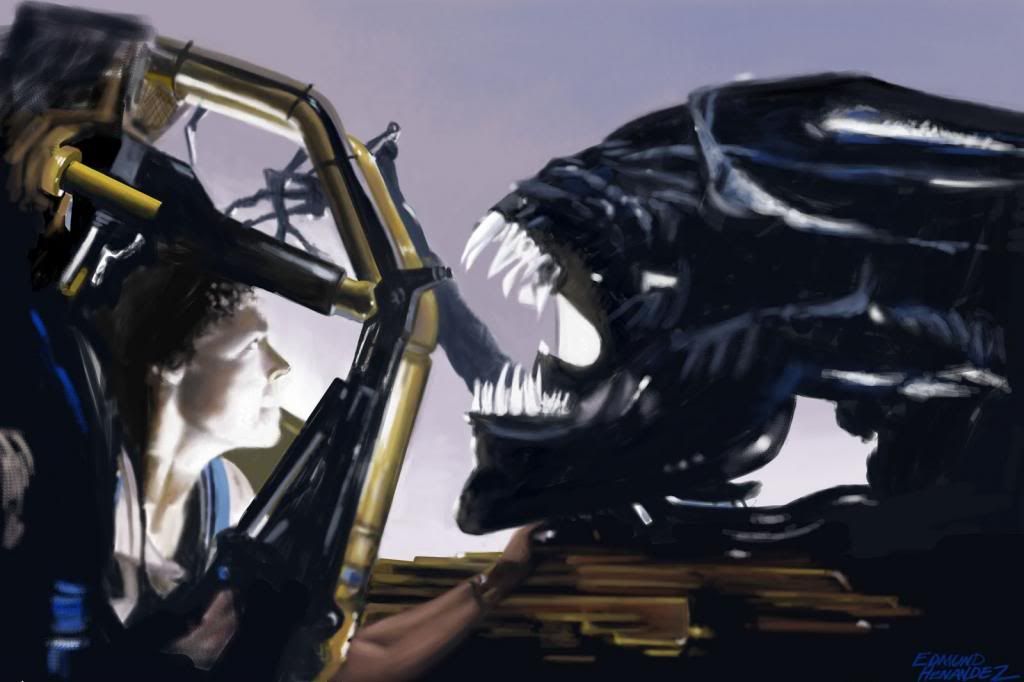 |
| Edmund Hernandez |
The
first film tackles it primarily through MU-TH-UR, the computer
controlling the Nostromo. MU-TH-UR initially seems to be a benevolent
force, giving birth to the mostly nude crew as they emerge from
hypersleep, but there are some interesting implications that emerge over
the course of the film. First, while the system that the crew calls
“Mother” can communicate with them at any time through the intercom,
only the ranking officer can access Mother directly. Because of the
maternal name, it’s a bit like the mainframe is playing favourites, and
Ripley is only worthy of her attention after both Dallas and Kane die.
It is from Mother that Ripley learns that they have been deemed
expendable, and it is Mother who ultimately turns against Ripley by
turning off the cooling unit, as if in retaliation for Ripley blowing up
the ship. Mother comes across as more than a little cold and
vindictive.
In
the second film, the treatment of motherhood is made more complicated
by the presence of three different kinds of “mother.” The first is the
group of human incubators, who “give birth” to the alien fetuses who
gestate within them. This is a brutal definition of motherhood,
beginning with a kind of rape and ending with the violent, bloody death
of the parent.
The
second type is represented by Ripley, who loses one daughter only to
gain another. She is presented as an ideal mother: loving, devoted, and
willing to do just about anything to protect her child. The final two
action sequences are driven by Ripley’s need to save Newt, as she
descends into the nest when the objectively smarter course of action
would be to let the whole place burn in the impending nuclear explosion.
The last big set piece is a physical battle that takes place between
Ripley and the alien queen, who only follows her onto the ship because
Ripley torched all of her eggs. Ripley uses her skill and ingenuity to
win a fight against a much more overtly lethal opponent, and her success
in eliminating the threat and protecting her child implicitly labels
her the superior mother.
What
is particularly interesting, however, is the film’s treatment of the
third kind of mother: the alien queen. By paralleling her with Ripley,
the film almost humanizes her; Ripley’s love for Newt is reflected in
the queen’s concern for her offspring. We side with Ripley because she’s
one of us and she is fighting to secure the survival of humankind, but
it’s difficult not to sympathize with someone who just watched an alien
invader burn her children alive. The Mama Bear badassery that we admire
in Ripley is answered by a similar quality in the queen, whose goal in
boarding the ship is not spreading the species, but getting revenge. By
reflecting aspects of Ripley in the queen, the film makes a species that
was once terrifying in its very alienness disconcertingly familiar.
In
some ways, it does the same with the female action hero, especially for
a modern audience looking back. Ripley rocked the John McClane look two
years before Die Hard
was released, and her story resembles films about male superheroes that are
currently in theatres. She paved the way for Sarah Connor, Black Widow,
and the women of whom Hollywood’s favourite Strong Female Characters
are merely a pale imitation. What is even more remarkable is that she
did this in a film that featured other women. Of the small group of
Marines that goes on the mission, three are women. One is a pilot, one
is a medic, and the last one makes it through the majority of the film
and dies a heroic death. All three of them get lines. The intelligent,
resourceful kid that shows up as a boy in Iron Man 3
is depicted here as a girl perceptive enough to see through the happy
lies she has been told by adults. For a modern viewer, who will
encounter at the cinema only “a solid, impenetrable wall of movies about dudes,” this film does seem truly alien.
Verdict: Actual strong female character


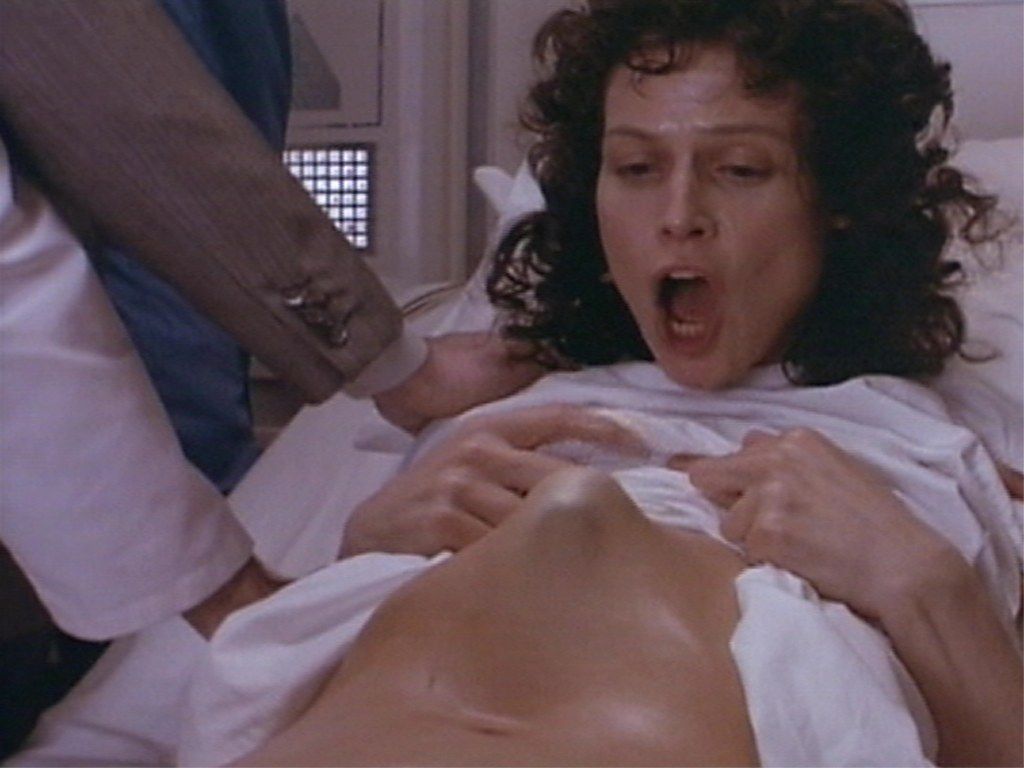
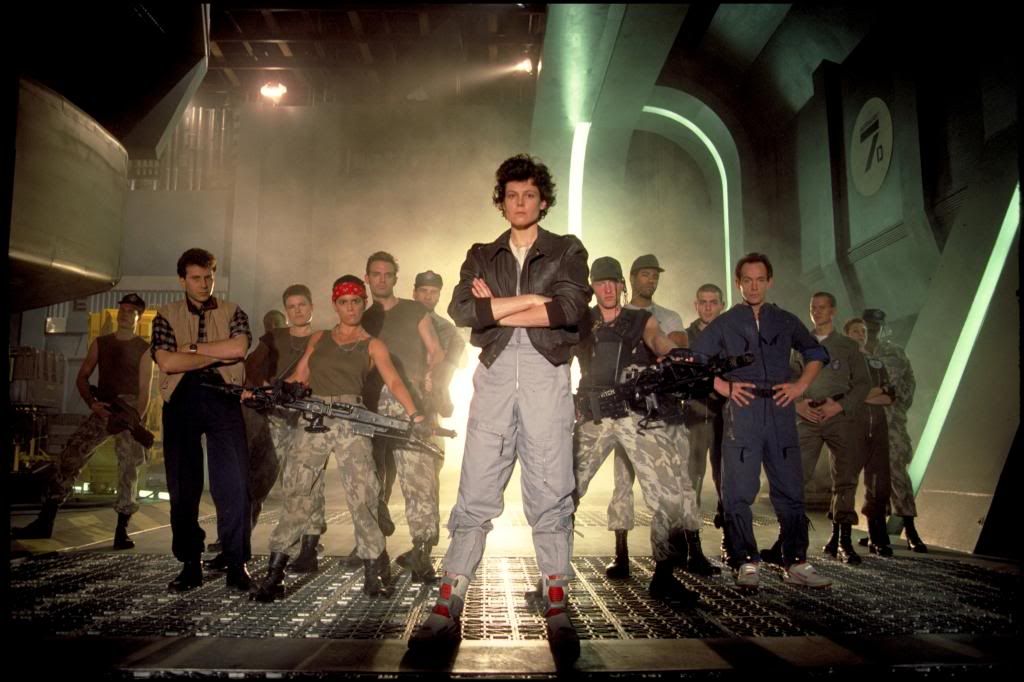
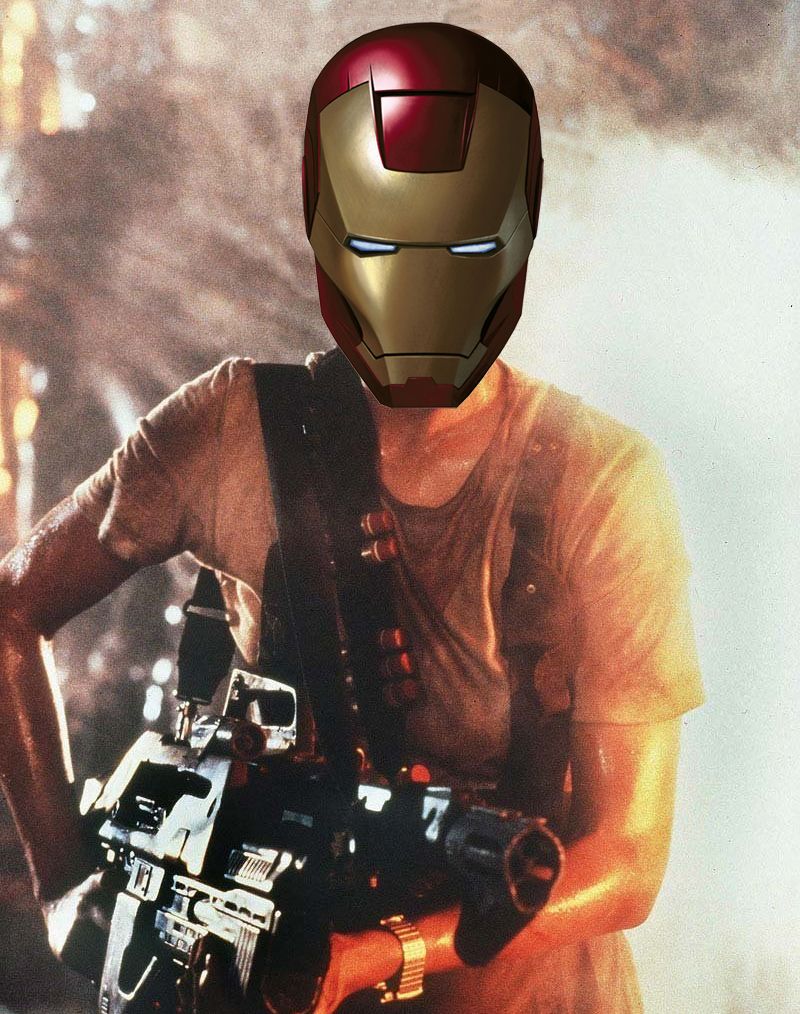
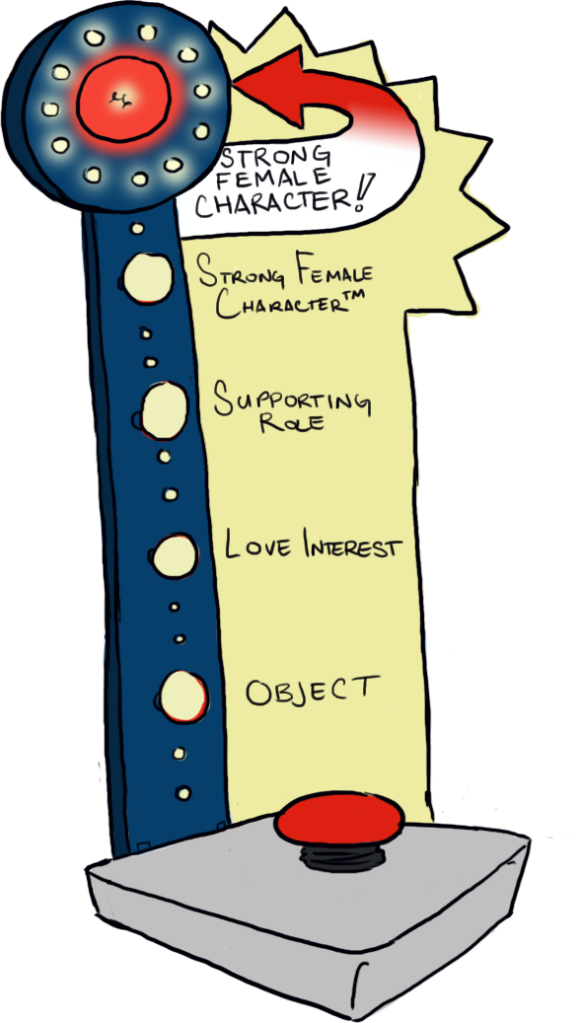
No comments:
Post a Comment